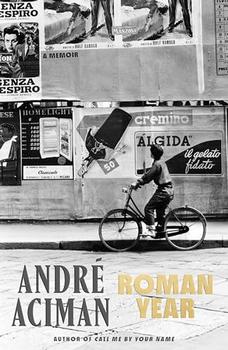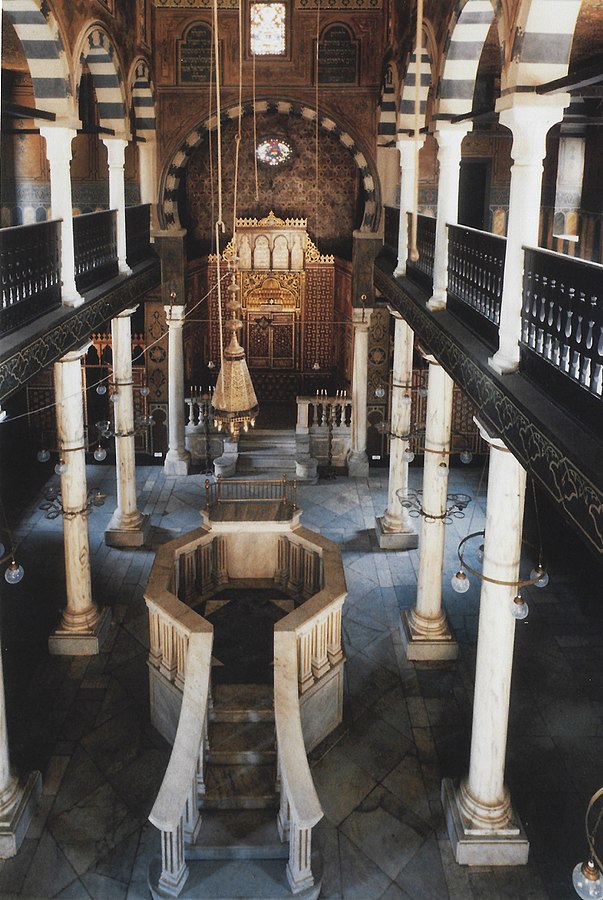Summary | Excerpt | Reviews | Beyond the Book | Read-Alikes | Genres & Themes | Author Bio

A Memoir
by Andre AcimanThis article relates to Roman Year
 Throughout Roman Year, André Aciman repeatedly and explicitly references the political policies of President Gamal Abdel Nasser as responsible for his Jewish family's refugee status in Rome for the period of the memoir's titular year. The number of Jews in Egypt is estimated to have been 75,000 to 80,000 at its height in 1948. From there, the population declined in numerous waves, with a major one, which embroiled Aciman and his family, occurring in the 1950s and '60s and resulting from Nasser's campaign to expel the Jews from Egypt. Today the number of Jews in Egypt is nearly zero.
Throughout Roman Year, André Aciman repeatedly and explicitly references the political policies of President Gamal Abdel Nasser as responsible for his Jewish family's refugee status in Rome for the period of the memoir's titular year. The number of Jews in Egypt is estimated to have been 75,000 to 80,000 at its height in 1948. From there, the population declined in numerous waves, with a major one, which embroiled Aciman and his family, occurring in the 1950s and '60s and resulting from Nasser's campaign to expel the Jews from Egypt. Today the number of Jews in Egypt is nearly zero.
Corresponding to Israel's newfound independence in 1948 (the same year, as mentioned above, in which Egypt's Jewish population was at its highest) was an uptick in hostilities against Jews in Egypt. Between June and November of that year, bombings in Cairo's Jewish Quarter carried a heavy toll: over 70 Jews were killed, while almost 200 were wounded. Around 40,000 Jews remained in Egypt at the time. The severity of the situation only intensified with the rise of Nasser, a nationalist who helped overthrow Egypt's monarchy in 1952 and named himself prime minister in 1954. He was elected Egypt's president on June 23, 1956.
On July 26, Nasser nationalized the Suez Canal, a major site of European commerce and trade controlled by British and French interests in the region. This decision was brought on by the United States and Britain backing out of a promise they had made to finance the construction of an Egyptian dam, due to Egypt's increasing connections with communist countries. Nasser was met with resistance on multiple fronts. On October 29, Israel invaded Egypt, and a few days later, on November 5 and 6, Britain and France also invaded. Only after pressure from the United States, who feared Soviet intervention, did the UN evacuate British and French troops. Israel withdrew not long afterwards, in March 1957. Nasser emerged victorious, seemingly a champion of Arab and Egyptian nationalism.
While fighting with Israel, Britain, and France, Nasser's government declared Jews to be enemies of the state. In 1956, around 1,000 Jews, half of whom were Egyptian citizens, were arrested in Cairo. Thirteen thousand French and British citizens, with Jews among them, as well as 500 Jews who did not possess French or British citizenship, were expelled from Egypt. Nasser's government ordered the nationalization of British and French citizens' assets, seized hundreds of businesses owned by Jews, and forced Jewish people to sign away claims, property, and citizenship under the threat of containment in concentration camps. After a huge exodus of Jews from Egypt, only 15,000 remained in 1957. Many of those expelled from Egypt found refuge in Europe, including countries like France and Italy. An article for the Stroum Center for Jewish Studies by
Pablo Jairo Tutillo Maldonado suggests that many left for European nations "most likely because they were not affiliated with the political Zionist movement, and perhaps because they had previously obtained citizenship from those countries." Aciman and his family, having applied for and been granted Italian citizenship, settled in Rome. Out of love for Paris, Aciman seriously considered taking up residence in France at the time.
While Aciman and his family lost most of the wealth they had enjoyed while living in Alexandria, they managed to avoid the concentration camps during their expulsion. Near the end of Roman Year, though, Aciman writes of meeting a friend who had only recently arrived in Italy from Egypt. Clearly traumatized, this formerly high-spirited friend recalled being beaten every day in a concentration camp where his father was still imprisoned.
Ben Ezra synagogue in Cairo, Egypt, no longer in use today
Photo by Schlanger (CC BY-SA 4.0)
Filed under People, Eras & Events
![]() This article relates to Roman Year.
It first ran in the November 20, 2024
issue of BookBrowse Recommends.
This article relates to Roman Year.
It first ran in the November 20, 2024
issue of BookBrowse Recommends.
Your guide toexceptional books
BookBrowse seeks out and recommends the best in contemporary fiction and nonfiction—books that not only engage and entertain but also deepen our understanding of ourselves and the world around us.